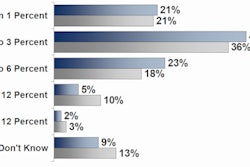Large-scale electronic medical record (EMR) programs promise much but sometimes deliver little, according to a new study published in the December issue of the Milbank Quarterly, a peer-review journal of health and health policy.
The findings have implications for large-scale electronic medical records programs being implemented around the world, according to the research team from the University College London, who say that their study identifies fundamental and often overlooked tensions in the design and implementation of electronic patient record programs.
The study was conducted by a British research team headed by Professor Trish Greenhalgh of University College's department of open learning, who undertook the research on behalf of the U.K.'s National Programme for IT (Milbank Quarterly, December 2009, Vol. 87:49, pp. 729-788).
The group conducted a "review of reviews" of the literature for major studies on EMR implementation and effectiveness. They examined 24 published reviews of more than 2,000 independent studies, as well as an additional 94 primary studies.
Studies from both inside and outside the health informatics field raised questions about both the scalability and the transferability of EMR systems, especially when such systems are developed commercially rather than grown organically within an institution, according to the authors.
In addition, between 50% and 80% of EMR projects fail. Typically the larger the project was being undertaken, the greater the probability of failure was, the research team discovered.
The authors noted the following:
- Use of printed documentation can offer greater flexibility for many aspects of clinical work than types of electronic records software currently available
- Clinical work can be made less efficient by EMRs, even though audits and billing services may be made more efficient
- Smaller, local EMR systems appear to be more efficient and effective than larger ones in many situations and settings
- Seamless integration between different EMR systems is unlikely ever to happen
An interdisciplinary debate on priorities for EMR research and policy with input from academics, service users, clinicians, policymakers, technical designers, research sponsors, and the commercial IT sector is urgently needed, according to the research team.
The study is being made available free of charge and may accessed by clicking here.
Related Reading
No hospital savings with electronic records: U.S. study, November 23, 2009
HIMSS survey: EMR tops healthcare IT plans, February 25, 2008
High-tech communication tools improve patient care, studies find, December 6, 2007
Healthcare facilities vigorously enforce patient privacy, August 27, 2007
Regulatory carve-outs hope to spur HIT growth in U.S., February 28, 2007
Copyright © 2009 AuntMinnie.com



















